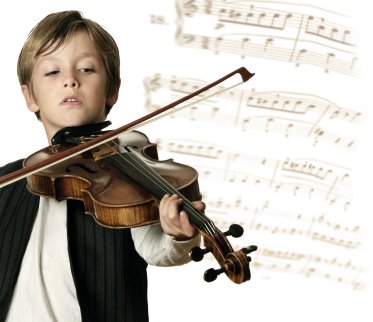Giftedness is a far more complex concept than can be captured by IQ, achievement score, or performance. There is another, sometimes overlooked dimension, as parents of an intensely emotional, yet highly analytical and logical child will tell you. Giftedness has an emotional as well as intellectual component. Intellectual complexity goes hand in hand with emotional depth. So gifted children not only think differently from other children they also feel differently.
Two special emotional and social aspects of gifted children are discussed here. Heightened sensitivity and peer relationship
Heightened Sensitivities
One of the basic characteristics of the gifted is their intensity. Intensity is not a matter of degree but of a different way of experiencing: vivid, absorbing, penetrating, encompassing, and complex.
Emotional intensity is expressed by the gifted through a wide range of intense feelings such as extremes of emotion, complex emotions, identification with others' feelings, timidity, shyness, strong affective memory, fears and anxieties, feelings of guilt, concerns with death, depressive and suicidal moods, concern for others (empathy), sensitivity in relationships, difficulty in adjusting to new environments, loneliness, conflicts with others over depth of relationship, self-evaluation and self-judgment. These feelings may appear very early in gifted children. They are often mistaken for emotional immaturity rather than as evidence of a rich inner life.
Avoid saying things like "You're just too sensitive" or "Stop over-reacting." Not only do such comments not help, they can make a child feel worse and even make the child feel as though there must be something wrong with him. The basic, essential approach is to keep the lines of communication wide open so we can truly hear and understand as gifted children try to make sense of daily life. Gifted children are not able to fulfill their potential without consistent and caring adults in their lives.
Helping gifted children recognize and then build a base of strategies to deal with their overexcitabilities can relieve some of the pressure.
It is essential that parents, particularly parents of gifted children, set the stage for comfortable, on-going conversations. Although there has been no causal link substantiated between the amount of time a parent spends with their child and the success of that child, the value of time spent together has been reported by parents whose children have achieved success in a variety of areas. These parents point out that they are more able to observe changes in their child's behavior and can deal with issues in a more proactive way. Stress management skills are far more useful when included as a regular daily activity rather than used only as a reaction to problems, whenever they happen to arise.
Peer Relationships/Social Skills/Bullies
Is being gifted a contributing factor to problems with peer relationships and/or bullying? It's true that gifted children may have problems with peer relationships for many of the same reasons as all children; however, research on social adjustment and development of highly gifted children suggests that the majority of these children (over IQ 160) tend to internalize problems. On the outside they look more socially mature, but on the inside they experience more loneliness, isolation and peer difficulties than moderately gifted children.
Parents can do a lot to help with social relationships if they are sensitive, aware, and become knowledgeable about the situation. To begin, define your concerns about your child's social skills. "Which are within the realm of general social skills?" and "Which points have to do with being gifted?" Some concerns might fit into both columns.
Now, think about some of the general issues of peer relationships. For some children, making friends just doesn't come naturally. Sometimes, within the group at hand, there really isn't anyone who shares the same interests, style, level of knowledge, or sensibilities. However, being able to fit in with others is important. For this reason, it is important for parents to make sure their child is able to spend time with like-minded peers on a regular basis. If it's not possible within the school setting, then look beyond the school walls for "interest peers." Differences in age can melt away when like-minded people share a passion.
Because gifted children are often more sensitive and emotionally aware than other children, they can easily become hurt by unkind comments and/or rejection by others, whether or not they are target.
Guide your gifted child to recognize behaviors that can hinder him from making friends, such as being bossy, telling others how to play, telling others they are doing things wrong, being too intense or serious most of the time, talking about themselves a lot, being negative, using ridicule or sarcasm, bragging. Highly gifted children who are most successful in dealing with peers are those who are able to go along with group goals, be flexible and able to assume multiple social roles (listener, active questioner about another's interest, noticing affect state and activity level of peers, finding commonalities with which to connect to the others).
Bullies and bullying is currently a big topic in the news. If your child is involved in this type of emotional and volatile situation, you must quickly move to find out the circumstances. If your child is the victim, the situation requires your full attention.
Check this article for more tips on this issue.
Check Also:
Parenting and Helping Giftedness
Sources: American Academy of Pediatrics
www.babycenter.com
National Association for Gifted Children

Your Baby checkup
what are the vaccinations that he should have taken until now?
Generate a report for my baby.
Track Your Baby Vaccinations
Find Your Baby name
Mohandessin
01002195777
01000012400
0233048350
Beverly Hills
01000012900
0238576831
El Tagamo3
Al Sheikh Zayed
02- 38514031
01000608597


